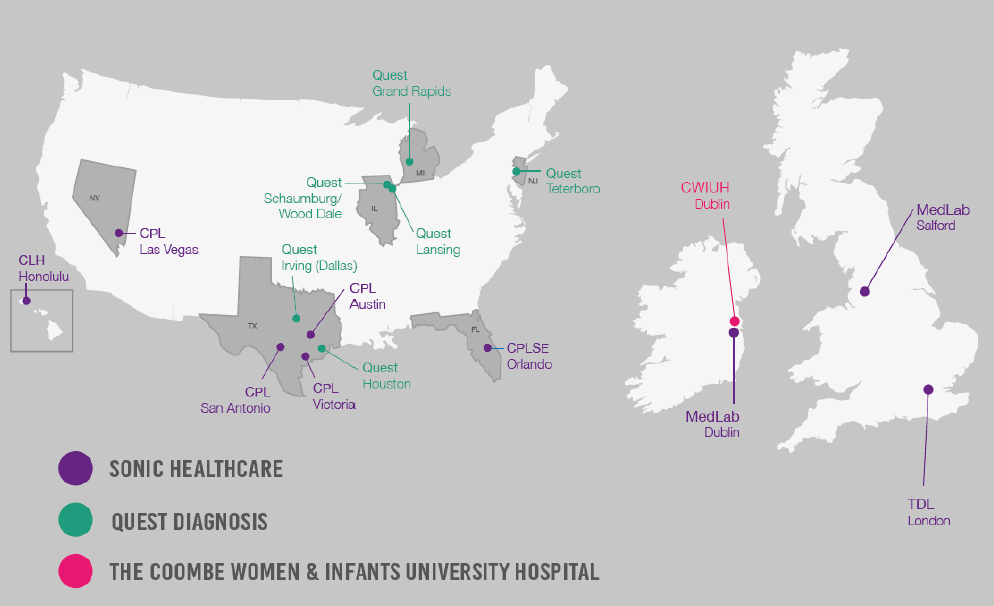It has emerged the number of laboratories involved in CervicalCheck screening was 16.
Dr Gabriel Scally was originally informed of six labs when he began his scoping inquiry into the CervicalCheck scandal last May.
However, Dr Scally's latest report finds no evidence that the labs where tests were outsourced to were providing an inadequate service in their countries.
It emerged last year that the HSE and CervicalCheck were not aware that one of the US labs it had hired to process smears was sub-contracting the work to other facilities.
The analysis was being conducted in a number of locations in the US – with sites as far away as Hawaii.
Dr Scally was asked to further look into the issue, and today has published a supplementary report detailing his findings.
 The 16 labs involved in examining the slides of Irish women participating in CervicalCheck. Image: Scally report
The 16 labs involved in examining the slides of Irish women participating in CervicalCheck. Image: Scally reportHe explains that when he began his scoping inquiry he was informed of six labs - increasing to 11 by the time of his final report last September.
However, the actual total is 16 - two in Ireland, two in the UK, and 12 in the US.
The report states: "It is profoundly disappointing that the Scoping Inquiry only learnt about the additional laboratories as a result of our extensive and intensive probing.
"There has been very limited evidence made available to the Scoping Inquiry to show that CervicalCheck was ever consulted actively and in writing about the potential or actual use of the 10 additional laboratories."
It also reiterates that the quality assurance carried out by CervicalCheck was inadequate.
However, Dr Scally stresses that no evidence has been found that the labs used in the past or are currently in use have provided a service which does not meet acceptable standards in their country.
Elsewhere, he stresses that Ireland's screening programmes should not be put at risk due to failures in responding to the 'rare occasions' when errors occur - but adds there is a "crying need" for a change of approach.
Reaction
Responding to the report, the HSE welcomed its publication - saying it provides further reassurances to Irish women about cervical screening quality.
Dr Lorraine Doherty, Clinical Director CervicalCheck, observed: "As Dr Scally said in his report, the continuation of cervical screening is of ‘crucial importance’. Cervical screening can prevent 75% of cervical cancer cases."
Acknowledging that cervical screening is not perfect, she added: "We recognise the many challenges faced by CervicalCheck and we are fully committed to addressing these and working to rebuild confidence in our screening programme.
"We are committed to delivering the best possible cervical screening service for the people in our care and their families.”
CervicalCheck Campaigner Stephen Teap's wife Irene died of cancer after a test were misread.
Speaking on The Hard Shoulder, he says families want to know the identity of labs where mistakes were made.
He observed: "The problem is we don't know where [the tests] were read.
"I'll be going to court... can I get that answer when I'm in front of them? I will try - that's what I want to get."
Additional reporting by Michael Staines









